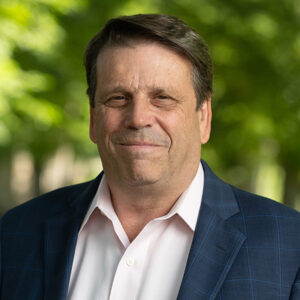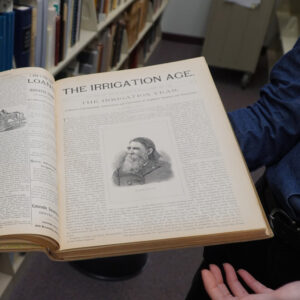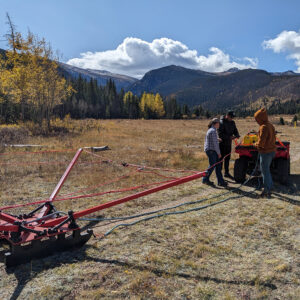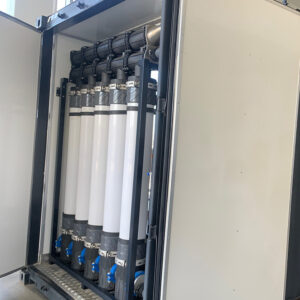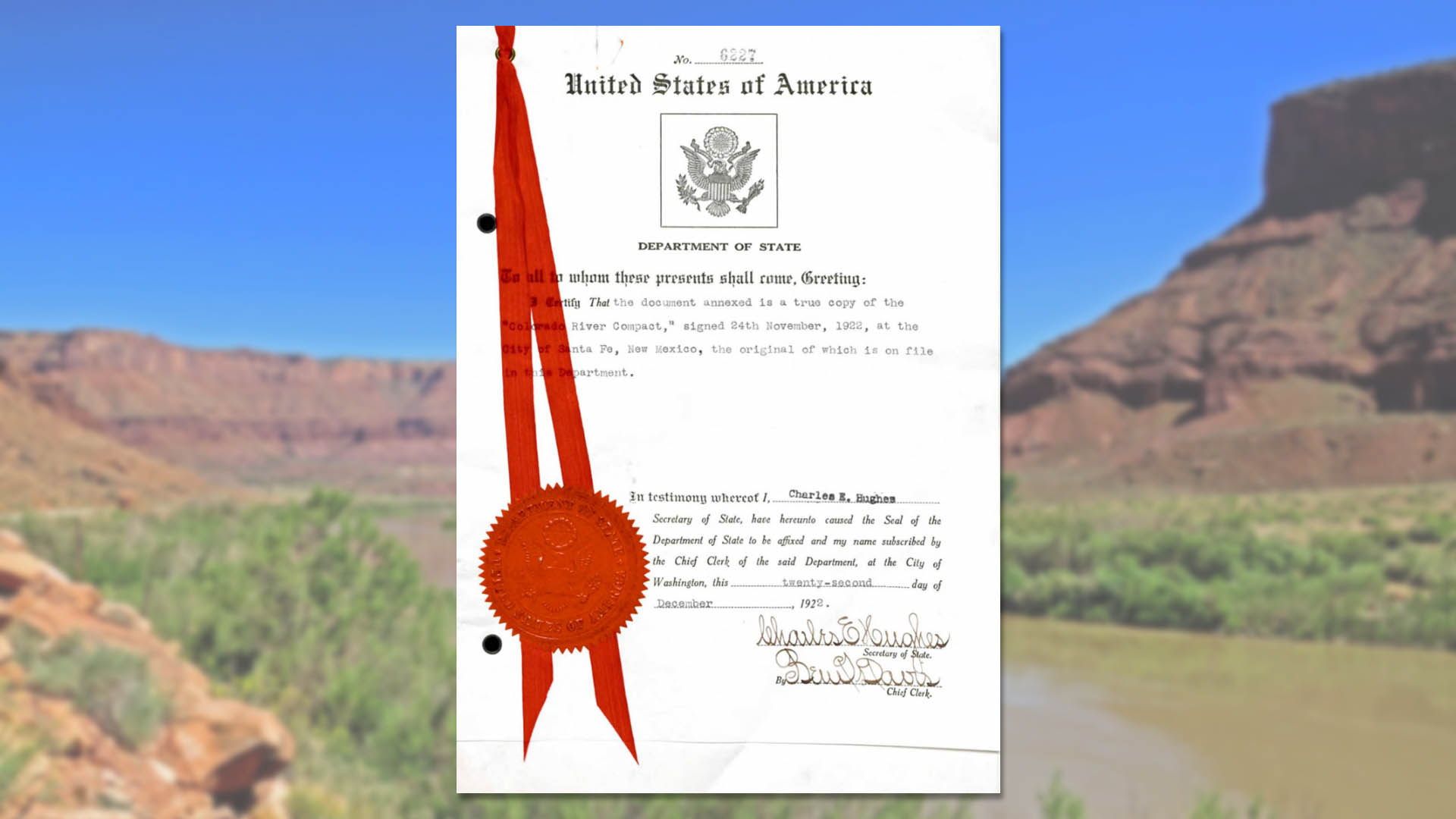
Did you know CSU has a copy of the Colorado River Compact?
This and other resources shed historical light on water in the West
story by Allison Sylte
updated March 4, 2024
One hundred years after leaders from seven Western states gathered to sign what was at the time a historic agreement, the Colorado River is once again at a breaking point.
The federal government is now paying communities in California, Arizona and Nevada to avoid using water from the Colorado River, and hydropower production has fallen due to historically low levels in the nation’s largest dams.
This is leading some experts to advocate for making changes to the Colorado River Compact, which was signed on Nov. 24, 1922.
Ahead of this anniversary, here’s a look at Colorado State University resources and water experts who can provide insight on the history of the compact, the state of water in the West and what’s next for the Colorado River.
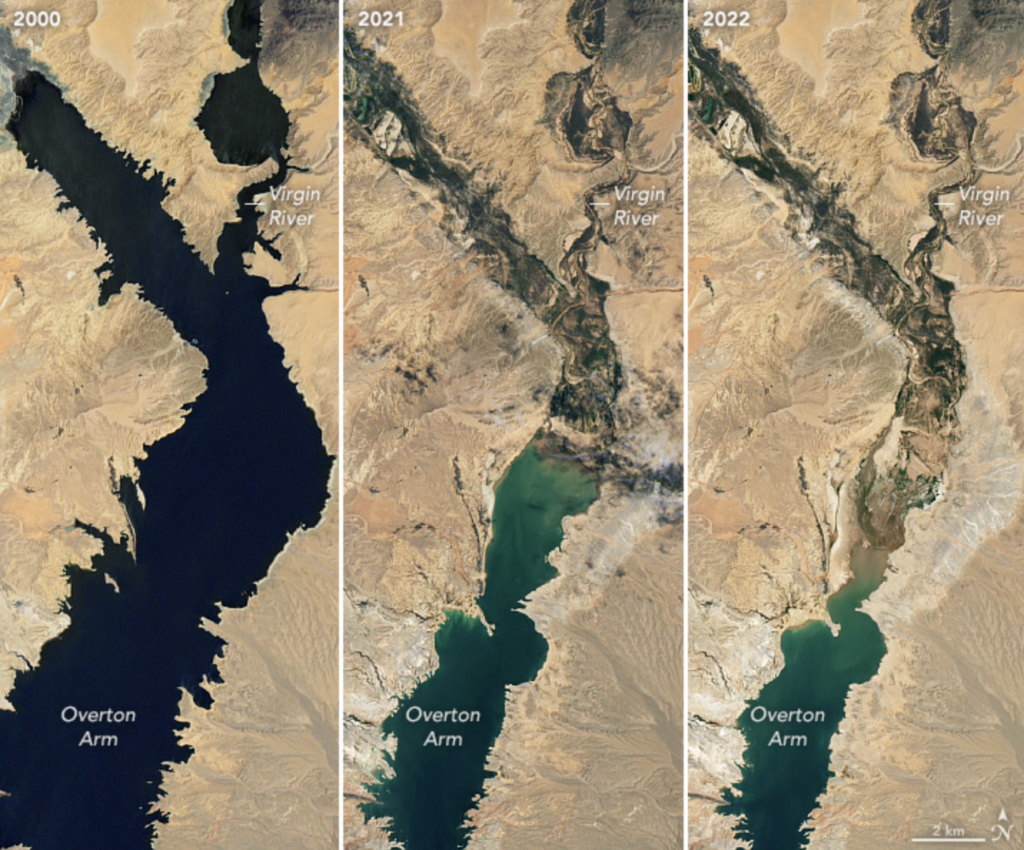
A comparison of water levels on Lake Mead from 2000 to 2022. (Photo courtesy NASA)
The Water Resources Archive
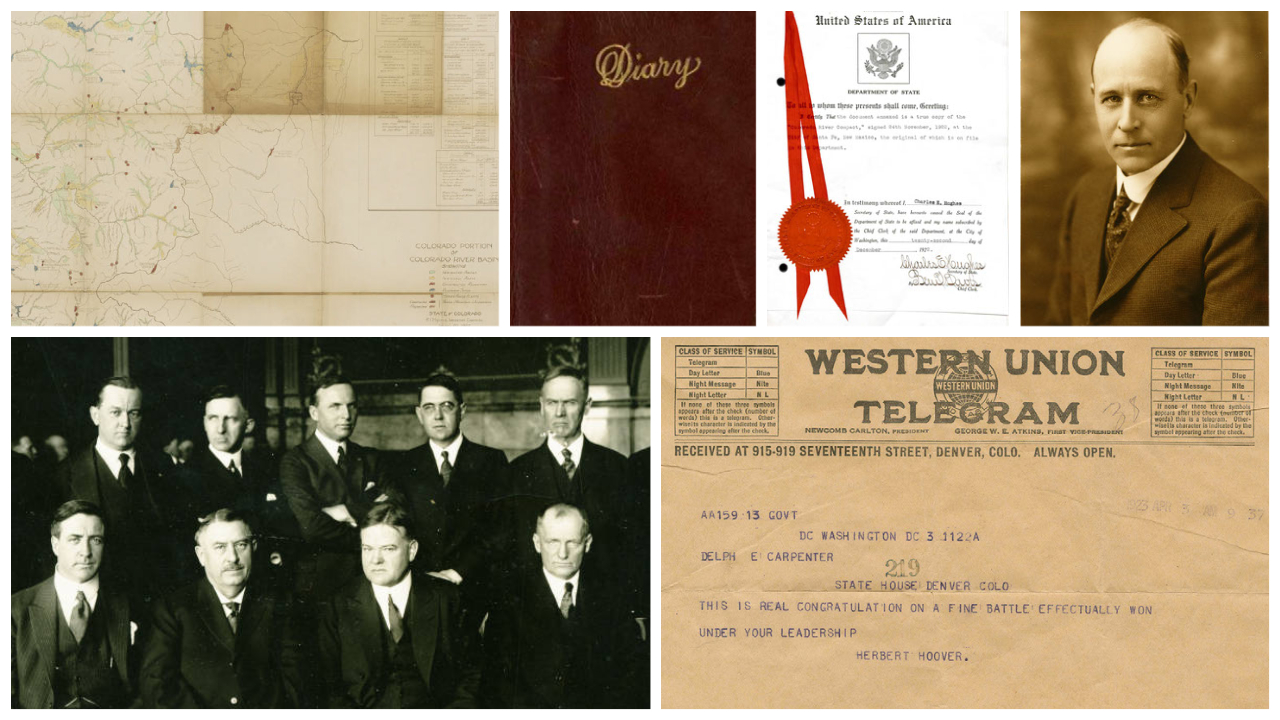
The CSU Water Resources Archive is a joint effort between CSU Libraries and the Colorado Water Center. It is home to numerous primary materials related to the history of the Colorado River Compact – including a copy of the 1922 document itself.
Patty Rettig, the archivist for the collection, shared a look at some of the significant historical documents at CSU Libraries. See them below, and click the photos and links in the text to access the versions on the archive’s website.
For media: High-resolution video of the Colorado River Compact and other items in the CSU Water Resources Archive is available here: https://col.st/Ij1ZY
Q&A with Patricia Rettig: Why it’s so important to preserve the history of the Colorado River Compact
Colorado Water Center
The Colorado Water Center is one of 54 Water Resources Research Institutes created by the Water Resources Act of 1964.
The Center leads interdisciplinary research, education and outreach efforts to address complex and evolving water-related challenges in Colorado and beyond by fostering collaboration between higher education and water stakeholders, synthesizing objective water knowledge to inform decision-making – inspiring the next generation of water leaders.
For a full list of Colorado Water Center experts, visit: watercenter.colostate.edu/csu-water-experts/
SOURCE Special Report: Solving the water crisis
CSU has been at the forefront of hydrology for more than a century since Elwood Mead, the namesake of America’s largest reservoir, became the first head of the Department of Civil and Environmental Engineering in 1883. This special report from SOURCE explores the research happening at CSU and provides insights into the ongoing water crisis across the country and around the globe.

